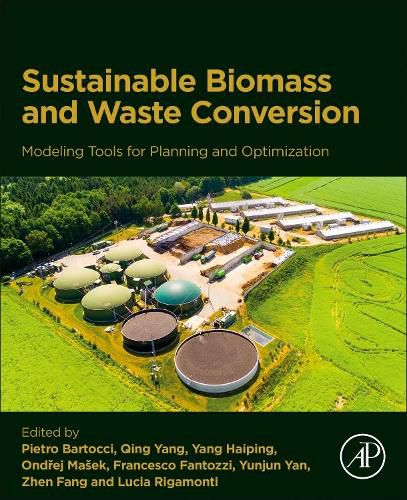Readings Newsletter
Become a Readings Member to make your shopping experience even easier.
Sign in or sign up for free!
You’re not far away from qualifying for FREE standard shipping within Australia
You’ve qualified for FREE standard shipping within Australia
The cart is loading…






Sustainable Biomass and Waste Conversion: Modeling Tools for Planning and Optimization provides practical knowledge on the technical, economic and environmental aspects of bioenergy, biorefining, and waste-to-energy systems through modeling. The book covers key-technologies and cutting-edge advances for biomass assessment using statistics and GIS systems, logistics optimization using Vehicle Routing Problem solvers, Neural Networks and Optimization models based on MILP and NLP, and energy demand assessment. In addition, sections cover feasibility plans for biorefineries and combined heat and power systems, and the fundamentals and challenges of modeling biomass and waste conversion processes, such as anaerobic digestion, pyrolysis, gasification, combustion, transesterification, fermentation and hydroprocessing.
The authors also examine economic and market factors influencing feedstock availability and price and provide tools for environmental and social impact analysis. Finally, the book illustrates the application of the methodologies covered through a number of case studies from around the globe, quizzes and exercises.
$9.00 standard shipping within Australia
FREE standard shipping within Australia for orders over $100.00
Express & International shipping calculated at checkout
Sustainable Biomass and Waste Conversion: Modeling Tools for Planning and Optimization provides practical knowledge on the technical, economic and environmental aspects of bioenergy, biorefining, and waste-to-energy systems through modeling. The book covers key-technologies and cutting-edge advances for biomass assessment using statistics and GIS systems, logistics optimization using Vehicle Routing Problem solvers, Neural Networks and Optimization models based on MILP and NLP, and energy demand assessment. In addition, sections cover feasibility plans for biorefineries and combined heat and power systems, and the fundamentals and challenges of modeling biomass and waste conversion processes, such as anaerobic digestion, pyrolysis, gasification, combustion, transesterification, fermentation and hydroprocessing.
The authors also examine economic and market factors influencing feedstock availability and price and provide tools for environmental and social impact analysis. Finally, the book illustrates the application of the methodologies covered through a number of case studies from around the globe, quizzes and exercises.